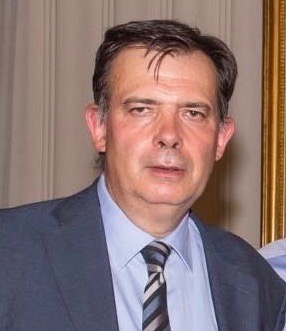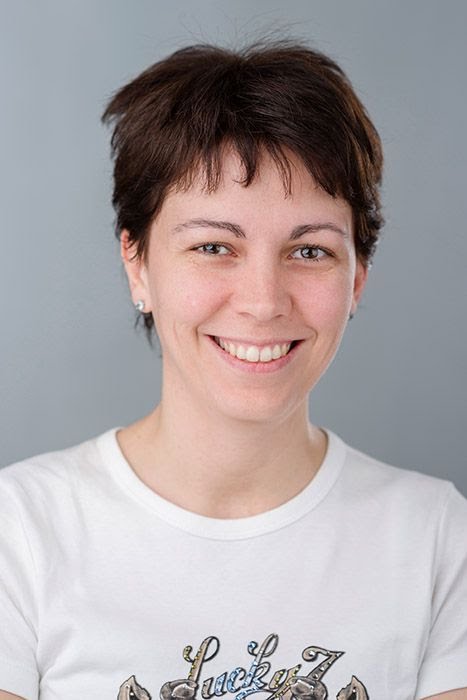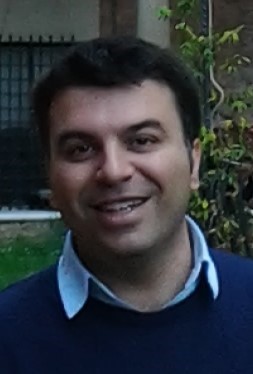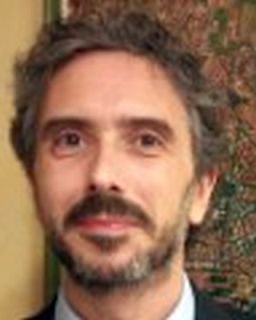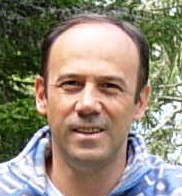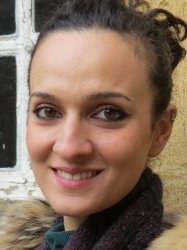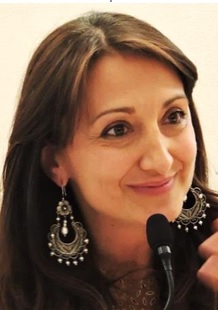Formazione e ricerca
Attività Formative del Corso di Dottorato - 2020/2021
Academic writing in latex and academic presentation
Crediti: 2,5
Lingua di erogazione: Italiano
Advanced English for academic skills
Crediti: 2,5
Lingua di erogazione: Italiano
Agenda dell’organizzazione delle nazioni unite 2030 sullo sviluppo sostenibile, ricerca e diritto antidiscriminatorio: strumenti ed esperienze nelle università
Crediti: 1
Lingua di erogazione: Italiano
Artificial intelligence, cybersecurity e diritto
Crediti: 1
Lingua di erogazione: Italiano
Behavioral and experimental economics
Crediti: 5
Lingua di erogazione: Italiano
Docente: Luca Zarri, Simone Quercia, Maria Vittoria Levati
Comunicare la scienza: il ruolo dei ricercatori e il rapporto tra esperti, cittadini e istituzioni
Crediti: 0,5
Lingua di erogazione: Italiano
Corporate governance
Crediti: 5
Lingua di erogazione: Italiano
Docente: Alessandro Lai
Corso di inglese B1/certificazione B1
Crediti: 2,5
Lingua di erogazione: Italiano
Corso di inglese B2/certificazione B2
Crediti: 2,5
Lingua di erogazione: Italiano
Corso di inglese C1/certificazione C1
Crediti: 2,5
Lingua di erogazione: Italiano
Corso di lingua italiana per stranieri
Crediti: 2,5
Lingua di erogazione: Italiano
Corso di programmazione con matlab
Crediti: 2
Lingua di erogazione: Italiano
Corso di statistica medica con r
Crediti: 3
Lingua di erogazione: Italiano
Corso statistica base
Crediti: 2,5
Lingua di erogazione: Italiano
Corso statistica intermedia
Crediti: 2,5
Lingua di erogazione: Italiano
Corso sulla meta-analisi
Crediti: 1,5
Lingua di erogazione: Italiano
Corso teorico-pratico di microscopia di base
Crediti: 1
Lingua di erogazione: Italiano
Development economics
Crediti: 5
Lingua di erogazione: Italiano
Docente: Federico Perali
Diritto d'autore e brevetti
Crediti: 1
Lingua di erogazione: Italiano
Dissemination dei risultati della ricerca
Crediti: 1
Lingua di erogazione: Italiano
Econometrics for management
Crediti: 7,5
Lingua di erogazione: Italiano
Docente: Diego Lubian, Francesca Rossi, Alessandro Bucciol
Energy economics
Crediti: 5
Lingua di erogazione: Italiano
Docente: Luigi Grossi
English for academic presentations
Crediti: 2,5
Lingua di erogazione: Italiano
English for academic writing
Crediti: 2,5
Lingua di erogazione: Italiano
Finance
Crediti: 5
Lingua di erogazione: Italiano
Docente: Cecilia Mancini
Game theory
Crediti: 5
Lingua di erogazione: Italiano
Docente: Francesco De Sinopoli
Inequality
Crediti: 5
Lingua di erogazione: Italiano
Docente: Francesco Andreoli, Claudio Zoli
Introduzione al “public speaking”
Crediti: 1
Lingua di erogazione: Italiano
La mia archeologia e la mia politica culturale
Crediti: 0,5
Lingua di erogazione: Italiano
Linguaggio di programmazione python
Crediti: 2,5
Lingua di erogazione: Italiano
Macro economics
Crediti: 5
Lingua di erogazione: Italiano
Docente: Michele Imbruno, Alessia Campolmi
Mathematics
Crediti: 7,5
Lingua di erogazione: Italiano
Docente: Letizia Pellegrini, Alberto Peretti
Microeconomics I
Crediti: 10,5
Lingua di erogazione: Italiano
Docente: Tamara Fioroni, Claudio Zoli, Martina Menon
Organization theory
Crediti: 5
Lingua di erogazione: Italiano
Docente: Cecilia Rossignoli
Political economy
Crediti: 5
Lingua di erogazione: Italiano
Docente: Emanuele Bracco, Roberto Ricciuti, Marcella Veronesi
Presentazione programma horizon europe
Crediti: 1
Lingua di erogazione: Inglese
Probability
Crediti: 7,5
Lingua di erogazione: Italiano
Docente: Marco Minozzo
Project writing per principianti
Crediti: 1
Lingua di erogazione: Italiano
Qualitative methodologies in management studies
Crediti: 5
Lingua di erogazione: Italiano
Docente: Cecilia Rossignoli, Riccardo Stacchezzini
Quantitative methodologies in management studies
Crediti: 5
Lingua di erogazione: Italiano
Docente: Riccardo Scarpa, Diego Begalli
Seminario sugli organi di garanzia in materia di pari opportunità e prevenzione di fenomeni di discriminazione o di mobbing
Crediti: 1
Lingua di erogazione: Italiano
Software R
Crediti: 2,5
Lingua di erogazione: Italiano
Docente: Flavio Santi
Spin off e start-up innovative
Crediti: 1
Lingua di erogazione: Italiano
Statistics
Crediti: 7,5
Lingua di erogazione: Italiano
Docente: Catia Scricciolo
Supply chain management
Crediti: 5
Lingua di erogazione: Italiano
Docente: Barbara Gaudenzi
Tutelare il benessere psicologico nel percorso di dottorato: sviluppo e valorizzazione delle strategie e attitudini personali che predispongono alla soddisfazione professionale e collaborazione etica
Crediti: 1
Lingua di erogazione: Italiano
Inequality (2020/2021)
Docenti
Referente
Crediti
5
Lingua di erogazione
Italiano
Frequenza alle lezioni
Scelta Libera
Sede
VERONA
Obiettivi formativi
This 20 hours/10 lectures PhD module combines theoretical and empirical approaches to outline economic and statistics arguments for the analysis of economic inequality.
The objective of the module is to address two key questions, raised by two of the main contributors to modern inequality analysis, that systematically emerge in public economics and in the policy literature: the first question, addressed by Amartya Sen, is “Inequality of what?”; the second question, that stems from the lifelong research of Tony Atkinson, is “What can be done?”
The first part of the module focuses on the first question. We will define and document evidence about different notions of inequality that are intertwined with micro- and macroeconomic analysis: inequality of income, inequality across the life-cycle, inequality across and within groups (such as cohorts, generations, regions, families, genders, skills, human capital). The module will then survey and organize result son the normative underpinnings of measurement and analysis of inequality and related concepts, such as poverty, and social welfare. Empirical issues arising when implementing these models (data and inference) will be also discussed. The presentation will emphasize differences between unidimensional (such as in income or in health) and multidimensional inequality (based on the joint distribution of income and health, or inequality of income along the life course) and will investigate related phenomena, such as (ethnic and income) polarization, segregation, mobility, equality of opportunity.
The second part of the module will move from the analysis of distributions to that of redistribution of income or of endowments. The theory of (optimal) redistribution will be reviewed, drawing distinctions between implementation and expected effects on inequality of taxation and of targeted and universal (in kind and in cash) transfers. The module will focus on ex-post evaluation of the distributional impact of policies. We will review the identification of causal treatment effects along the whole distribution of an outcome, as well discuss implementation using distribution regression methods. Selected applications of these methods to the evaluation of the effects of early intervention (i.e. education and human capital reforms, the so-called “pre-distribution”) on inequality will be presented.
Programma
Outline of the module:
1) Inequality of what? This lecture introduces evidence about inequalities related to income (cardinal variable), education (discrete variable) and skills (ordinal variable) across individuals and families, along the lifecycle, and across groups defined by the cohort, the region of residence, the family background, gender. Additional estimates of inequality across generations (intergenerational persistence in income, siblings correlations, mobility matrices, inequality of opportunity measures) will be also discussed. Estimators and outcomes will be presented in this lecture benefitting from a sample (drawn from administrative records) covering 35% of the Swedish population born 1941-1965 for which income observations of parents, siblings and relatives are available for the period 1968-2007. Empirical inequality analysis: data issues and testing. This lecture will outline the most important data sources referenced in applied distributional analysis. The lecture will discuss differences between register, administrative and survey data, and will outline the most important findings (and literature) and difficulties related to some widely used databases. Sampling issues related to measurement and testing of various inequality criteria will be discussed, and the relevant inferential strategies proposed in the literature will be surveyed.
2) Univariate inequality, social welfare and poverty: measurement theory. The lecture will illustrates the basic principle behind the measurement of inequality and some of the more common criteria adopted in this framework.
3) From unidimensional to multidimensional inequality. Will be highlighted the main challenges related to the extension of the framework of analysis to multidimensional distribution. This is the case for instance when considering distributions of bundles of different goods or, as is the case for the Human Development Index, when combining evaluations based on the distribution of income, health and education across the population.
4) Inequality of opportunity: theory and measurement. Inequality of opportunity, as opposed to inequality of outcomes, draws a distinction between unfair inequality (that deserve a compensation) and just inequalities (such as those stemming from effort choices of healthy habits). This lecture will introduce the normative underpinning of the measurement of inequality of opportunity, a multidimensional phenomenon, and will show how this form of inequality can be measured empirically. The lecture will proceed by presenting data sources and empirical results produced in the recent years, including a discussion about the relation between inequality, mobility and equality of opportunity (represented by the so-called Great Gatsby curve).
5) Causal analysis of intervention: from average to distributional impacts of intervention. This lecture will discuss the fundamental problem of causal identification and will outline the most interesting theoretical effects for policy evaluation (ATE, CATE, ATT, LATE, ITT and QTE). Identification results for these effects will be presented, with a specific focus on implementation using distributional regression methods (DiD, CiC, RIF, RIF-DiD, Quantile Regression). Reweighing methods for counterfactual analysis will be introduced. Inequality, human capital and redistribution: This lecture will present and discuss selected applications of the empirical methods presented in the previous lectures to the analysis of distributional effects of pre-distribution of human capital. A specific focus will be given on evaluation of education expansion policies and pre-school programs.
Modalità d'esame
Assessments of students will be based on the development of a joint collaborative research project that investigates in details some subjects discussed in the module. The project could consider empirical and theoretical analysis or focus on one of the two perspectives.
Attività Formative della Scuola di Dottorato - 2020/2021
Offerta formativa della Scuola di Dottorato da definire
Docenti
 silvia.cavalieri@univr.it
silvia.cavalieri@univr.it
 tamara.fioroni@univr.it
tamara.fioroni@univr.it
 michele.imbruno@univr.it
michele.imbruno@univr.it
 cecilia.mancini@univr.it
cecilia.mancini@univr.it

Manzoni Elena
 elena.manzoni@univr.it
elena.manzoni@univr.it
 8783
8783
 0458028706
0458028706
 martina.menon@univr.it
martina.menon@univr.it
 0458028706
0458028706
 dora.renna@univr.it
dora.renna@univr.it

Santi Flavio
 flavio.santi@univr.it
flavio.santi@univr.it
 045 802 8239
045 802 8239
 riccardo.scarpa@univr.it
riccardo.scarpa@univr.it
 marcella.veronesi@univr.it
marcella.veronesi@univr.it
Dottorandi
 amiem.jobe@univr.it
amiem.jobe@univr.it
 enockdesmond.opoku@univr.it
enockdesmond.opoku@univr.it
 andrea.xamo@univr.it
andrea.xamo@univr.it
Loading...


